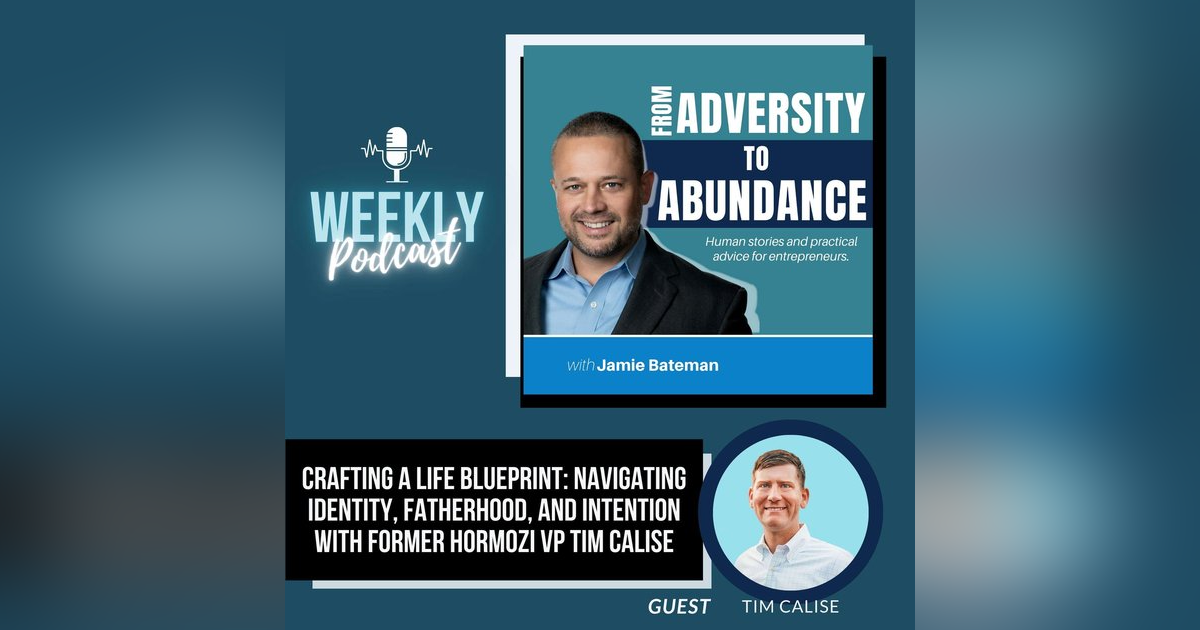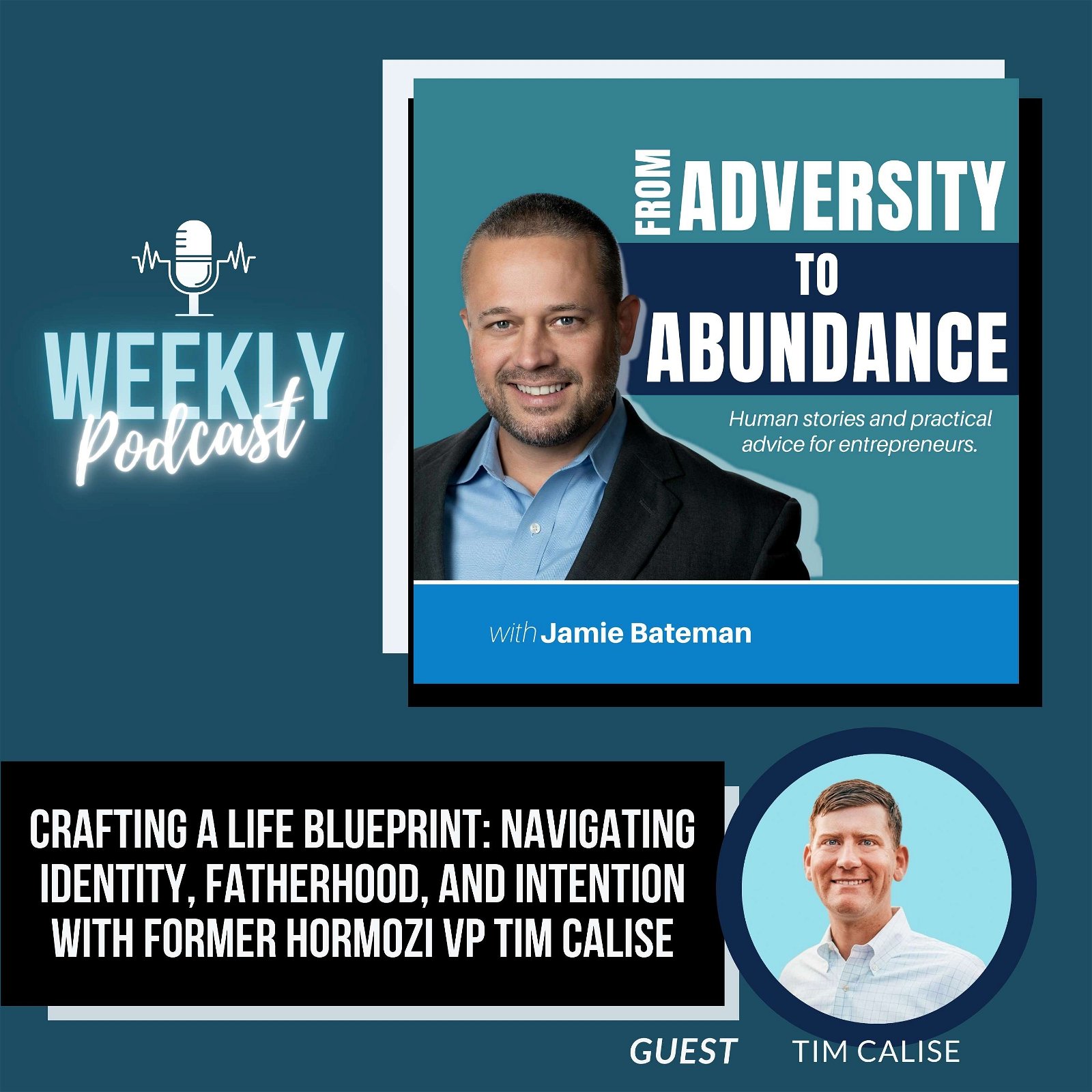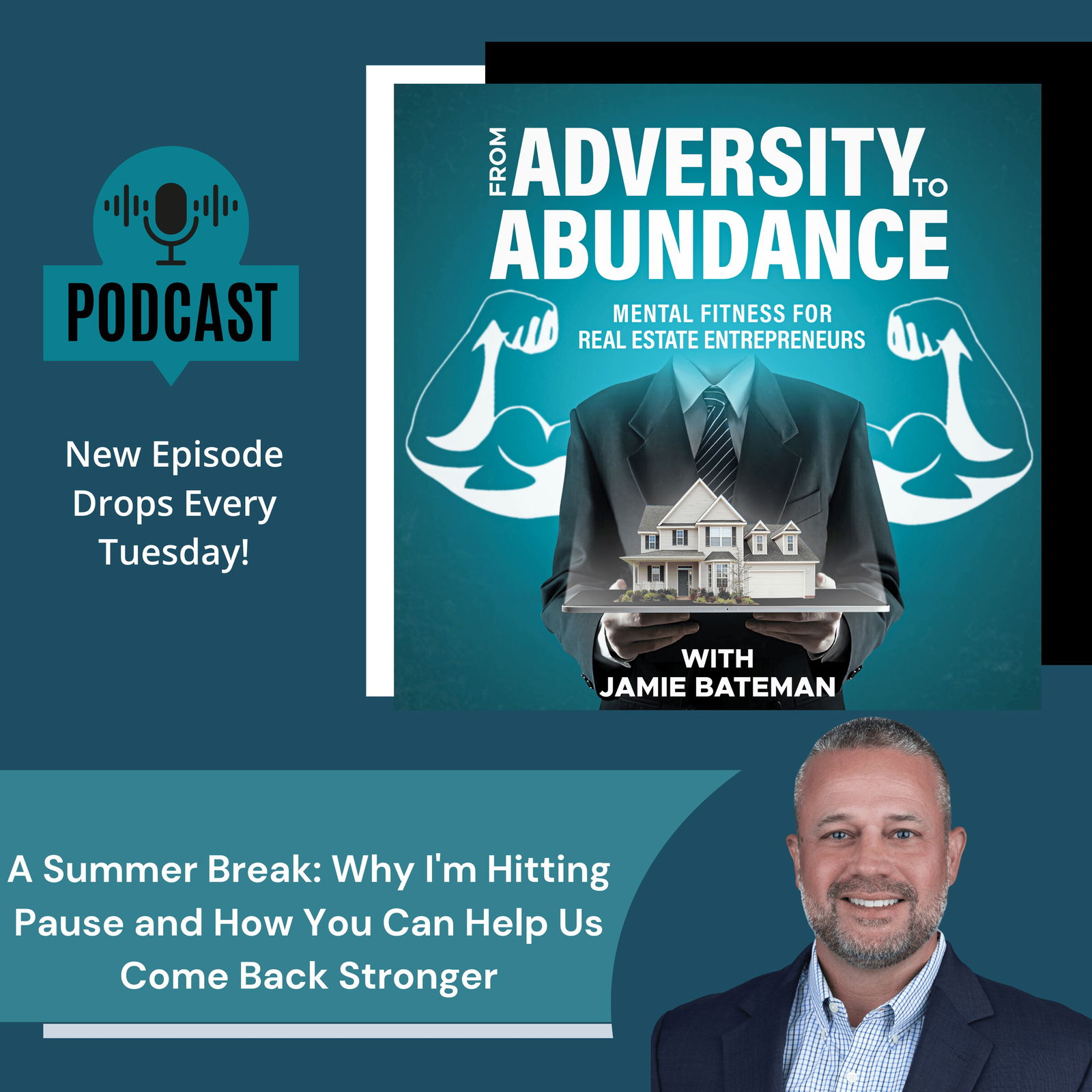Crafting a Life Blueprint: Navigating Identity, Fatherhood, and Intention with Former Hormozi VP Tim Calise


Do you yearn for a thriving entrepreneurial journey filled with remarkable achievements and breakthroughs? Wondering what it takes to attain such a result? Well, get ready to uncover the key solution that will propel you towards entrepreneurial success like never before. Through the power of mentorship and guidance, you can unlock a world of opportunities, overcome obstacles, and achieve unparalleled growth in your business endeavors.
In this episode, Tim Calise discusses the significance of having a growth mindset, grit, and the value of mentorship in his own entrepreneurial journey. Jamie and Tim also explore the power of focus, recommended books for entrepreneurs, and the impact of distractions on success. If you're an entrepreneur seeking guidance and support in your journey, this episode is a must-listen. Jamie's laid-back and personable style, combined with Tim's expertise, will leave you feeling inspired and equipped with valuable strategies for overcoming adversity and achieving abundance in your entrepreneurial endeavors. So grab your headphones, sit back, and get ready to learn from the best in the business.
"Do I want to die living the life that I or potentially fail living the life that I want or potentially succeed living the life that somebody else wants? For me?" - Tim Calise
"The adversity is just kind of these chapters and making hardline decisions for hopefully pursuing something better." - Tim Calise
Connect with Tim Calise:
WEBSITE: https://timcalise.com/
LINKEDIN: https://www.linkedin.com/in/tcalise/
FACEBOOK: https://www.facebook.com/tkcalise
INSTAGRAM: https://www.instagram.com/tim.calise/
TWITTER: https://twitter.com/KokoFitClubTim lubTim
YOUTUBE: https://www.youtube.com/watch?v=N1PiI8VxTFw
TIKTOK: https://www.tiktok.com/@timcalise
Haven Financial:
https://www.myfinancialhaven.com/jamiebateman/
ATTENTION:
Unlock the secrets to a transformative life with “From Adversity to Abundance: Inspiring stories of Mental, Physical and Financial Transformation”. Buy your copy now and embark on a journey from challenges to triumphs!
AMAZON: https://www.amazon.com/dp/B0CGTWJY1D?ref_=pe_3052080_397514860
Connect with us
WEBSITE: https://www.adversity2abundance.com
Leave us a rating or review: https://www.adversity2abundance.com/reviews/new/ or here
Got comments, feedback or suggestions? We’d love to hear it! https://www.adversity2abundance.com/contact/
Follow From Adversity to Abundance Podcast
FACEBOOK: https://www.facebook.com/profile.php?id=100089126144055
INSTAGRAM: https://www.instagram.com/adversitytoabundancepodcast/
LINKEDIN: https://www.linkedin.com/company/89949391/admin/feed/posts/
YOUTUBE: https://www.youtube.com/@FromAdversity2AbundancePodcast
Connect with Jamie
BOOK: From Adversity to Abundance: Inspiring Stories of Mental, Physical, and Financial Transformation
LINKEDIN: https://www.linkedin.com/in/jamie-bateman-5359a811/
TWITTER: https://twitter.com/batemanjames





